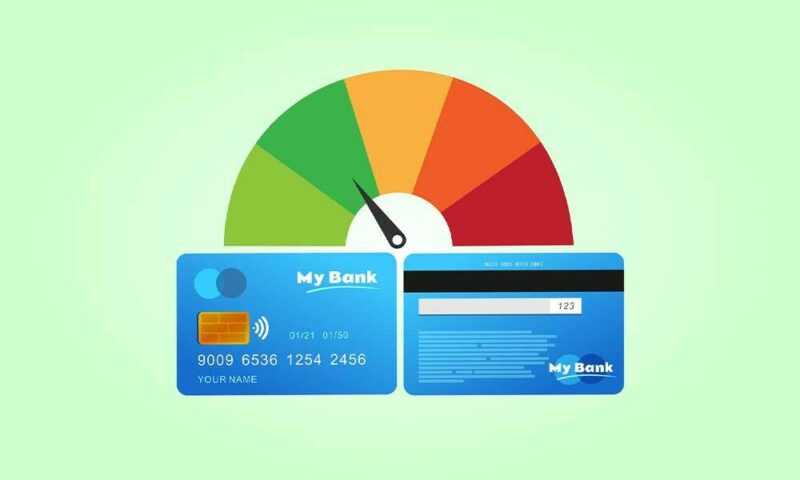Article Excerpt
Mortgage lenders check credit reports when deciding whether to approve loan applications. Learn more about credit reports and the information they contain.
Buying a home is the largest financial transaction many people will ever make. Unless a buyer has a very large amount of cash on hand, they will need a mortgage loan. The buyer pays a percentage of the purchase price as a down payment in most cases, and a mortgage lender provides the rest.
A lender takes a risk whenever they loan money to a homebuyer, so they want to know that the homebuyer will be able to repay the loan. Credit history offers one way for lenders to evaluate whether loan applicants will be a good risk.
Mortgage lenders may obtain compilations of consumers’ credit information known as credit reports. Each consumer has a credit score based on the information in their credit report. If you are thinking about buying a home, your credit history, credit report, and credit score will play an important role in the process.
What’s a credit report?
Credit reporting agencies (CRAs), also known as credit bureaus, collect information about consumer credit history and compile it into credit reports. This includes information submitted by creditors and debt collectors. It may also include information obtained from public records. The CRAs provide these reports to creditors, landlords, employers, and others for a fee. The three most prominent CRAs are Equifax, Experian, and TransUnion.
Read more: “Why Do I Have Different Credit Scores?” 4 Reasons Why
Federal law prohibits CRAs from releasing a report on a particular consumer without that consumer’s written permission. Applications for credit, leases, and jobs therefore typically include permission to access credit reports.
A credit report begins with a consumer’s personally identifiable information (PII), such as their name, address, date of birth, Social Security number, employment status, and employment history. Consumers provide this information when they apply for new credit. Changes or updates to PII, particularly something like a name change after getting married, could take several months or longer to show up in a credit report.
The main purpose of a credit report is to provide information about a consumer’s credit history, such as their total amount of debt and their history of making timely payments. Credit reports typically do not include information like marital status, educational background, or criminal history, unless any of those have a direct bearing on a creditor’s debt or payment history.

Image by Pabitra Kaity from Pixabay
What’s a credit score?
A credit score is a number derived from a consumer’s credit information using an equation known as a “scoring system.” It offers lenders an idea of a loan applicant’s credit history before they even look at a credit report.
Credit scoring occurs separately from the process of compiling credit reports. A credit report will therefore not include the consumer’s credit score.
The FICO score is the most common credit scoring system used by mortgage lenders. The Fair Isaac Corporation (FICO) introduced this system in 1989 in an effort to provide an “unbiased structure for evaluating [credit applicants] objectively.” Each consumer has a three-digit score ranging from 300 to 850 that represents their credit risk. A higher score means a lower risk for lenders.
![Photo by CafeCredit.com from Flickr [Creative Commons] Good credit score](/images/articles/_generalPhotoStandard/GoodCreditScore.jpg)
Photo by CafeCredit.com from Flickr [Creative Commons]
What does a credit report tell you?
Credit reports typically include information about debt, payment history, and collections, including:
Total amount of outstanding debt
Total number of open or active credit accounts
Current status of open or active credit accounts, such as “in good standing,” “overdue,” or “in default”
Recently closed credit accounts
History of timely or late payments
Number of recent credit inquiries, indicating how often lenders and other creditors request copies of the consumer’s credit report
Collection actions by debt collection agencies
Foreclosures
Collection actions found in public records, such as lawsuits or writs of attachment
Overdue or unpaid child support or alimony
Bankruptcy filings
Most information remains on a credit report for 7 to 10 years, after which CRAs will stop including it.
Why are credit reports important?
A credit report is extremely important when it comes to qualifying for a mortgage loan. The information in a credit report forms the basis for a loan applicant’s credit score. Some lenders will automatically reject an application if the applicant’s credit score is below a minimum level. Above that minimum threshold, a higher credit score often means a lower interest rate.
Lenders often take a deeper look at a loan applicant's credit report to assess the likelihood of either repayment or default. A history of prompt credit payments is only one way that a credit report can show that a person is a good credit risk.
Lenders also look for information about the capacity to repay a loan based on factors like the total amount of debt carried by the applicant and the stability of their income. They might look for information on how much money and other capital an applicant will have left once they have made the down payment on the home.
Read more: 5 Credit Score Factors: What Do They Mean for Mortgage Approval?

Photo by Mikael Blomkvist from Pexels
Can you see your own credit report?
Federal law requires the three main CRAs to provide consumers with a copy of their own credit report once per calendar year, free of charge and without any impact on credit history. A credit report typically includes credit inquiries from lenders, landlords, and others, based on the idea that the number of times a consumer applies for new credit could affect their creditworthiness. The consumer’s one annual request may not be included in the total number of inquiries.
The Consumer Financial Protection Bureau (CFPB) maintains a website in cooperation with the three main CRAs — AnnualCreditReport.com — where consumers may request their free credit report. The site also provides information on how to dispute inaccurate information in the report. Other websites may claim that they offer free credit reports as required by federal law, but this is the only officially-sanctioned website. Be sure to read the fine print on any other site.
The CFPB’s website does not provide a consumer’s credit score. Numerous commercial websites state that they will provide your credit score free of charge, but again, you should read the fine print closely and proceed with caution. Those sites are usually selling something.
Read more: I Messed Up My Credit Score - Now What?
What does your credit report reveal about your homebuying ability?
If you have questions about whether your credit history could affect your ability to buy a home, the knowledgeable and experienced home mortgage professionals at the Wood Group of Fairway are here for you.
We can help you find the best mortgage for your particular situation and guide you through the mortgage application process. It’s easy! Start now with a short questionnaire.



